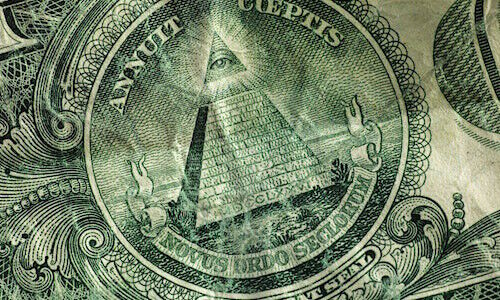U.S. Sanctions Cloud Mainland Market Opening
On the eve of the 90-day deadline for the Trump administration to submit to Congress a list of those «undermining Hong Kong’s autonomy», there are growing signals that China’s market-opening may not be a smooth ride.
On April 1 this year, China proceeded with its plans to scrap foreign ownership caps with state-owned media «Xinhua» lauding the efforts of a financial opening running «at full tilt despite the bite of the epidemic» and describing the prospective foreign entrants that followed immediately as «inspired».
Six months later, a more hawkish Washington presides over a wave of global financial institutions – including American giants like Goldman Sachs, J.P. Morgan and Blackrock – seeking mainland expansion. Naturally, Beijing has remained steadfast in its commitment to defend its stance against the U.S. and any potential damage inflicted by Washington though moves like sanctions.
As the State Department submits to Congress a list of targets, as per the «Hong Kong Autonomy Act» passed in July, will banks, asset managers and insurers looking for a share in the mainland market be hit in the U.S.-China crossfire?
«Magic Weapons»
Over the weekend, the former mayor of Chongqing Huang Qifan published a commentary naming three «magic weapons» to fight sanctions: highly restricted capital flows in and out of China; limited foreign ownership of financial assets; and Beijing’s extensive oversight of financial operations.
Although the comments were directed towards the threat of U.S. decoupling, the view that financial restrictiveness and control explicitly remains a political tool to defend Beijing’s interest against foreign moves may not necessarily bode well for global banks seeking expansion in the opening market.
«If the three areas are fully open, they will be controlled by the U.S., which will make it easy for the U.S. to subvert us,» said Huang, who is now the deputy head of Beijing-based think tank, China Centre for International Economic Exchanges. «These three areas of China are not open, or there is limited access under the jurisdiction of our system, and that makes it hard for the U.S. to subvert us.»
«Escalation Scenarios»
Although few are under the presumption that their business experience while expanding in China would immediately mirror many of the free market characteristics seen in the west, the risk that operations could be disrupted in favor of political priorities is rapidly becoming a reality that needs to be accounted for by global banks.
«Large non-U.S. banking groups with meaningful footprints in China or Hong Kong, including HSBC and Standard Chartered, are reviewing potential escalation scenarios,» said a research note last month by Fitch analysts Monsur Hussain and Grace Wu.
«Extension of sanctions to corporates with strong links to the Chinese state, or [state-owned enterprises], would add credit risk in addition to issues of reputational risk, which might incentivize these banks to manage their credit risk more tightly towards counterparties that could be affected.»
USD or China?
According to Fitch, the «most problematic» scenario is if sanctions hit systematically important state-owned banks by denying U.S. dollar clearance via U.S. financial institutions. Though it believes that such sanctions are unlikely due to the risk of tit-for-tat responses, it still anticipates incremental escalation by Washington.
But more importantly than predicting the timeline or extent of U.S.-China decoupling is the fact that successful access to the U.S. financial system and smooth business expansion in mainland China could become an increasingly binary matter.
Global banks face a new dilemma: risk dollar access by pursuing profit growth via mainland expansion or diversify income sources while retaining access.
Wall Street’s King: The Markets
Although few believe that many – if any – global financiers will abandon the China opportunity, even fewer are of the belief that the current time is ripe for U.S. dollar abandonment.
«It comes down primarily to the prominence of the U.S. dollar,» according to an «SCMP» report citing Bharath Vellore, Acuity’s APAC managing director. «If you are a bank and you are cut out of U.S. dollar settlement, that’s basically a death knell for the financial institution.»
«The king for Wall Street is the market,» Huang added. «Wall Street listens to the capital and financial market, not Trump.»






















